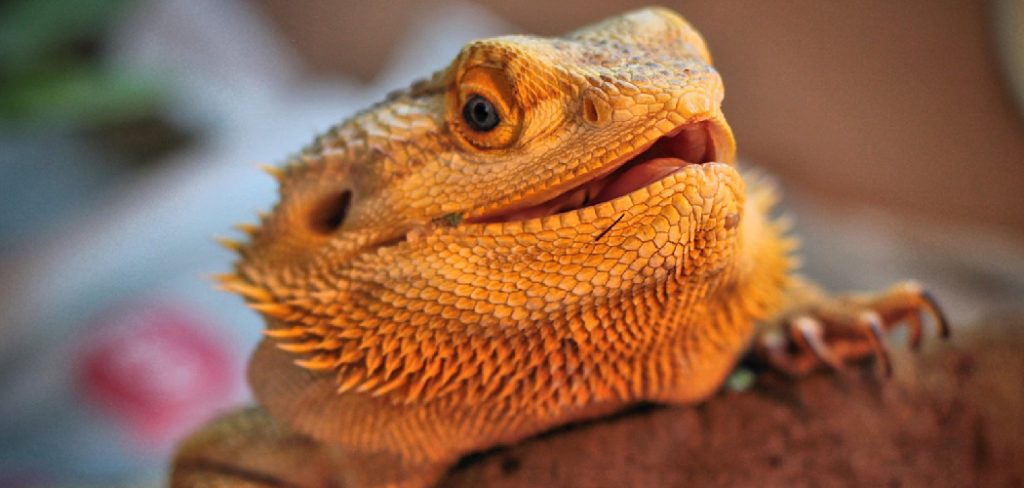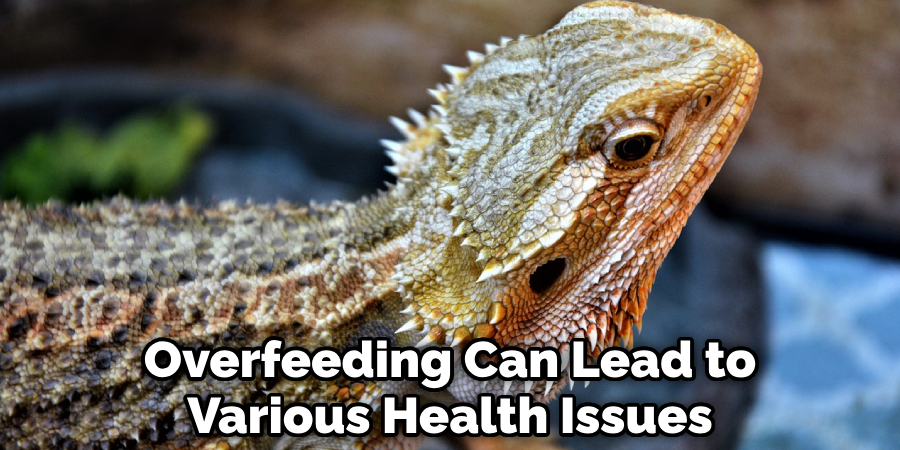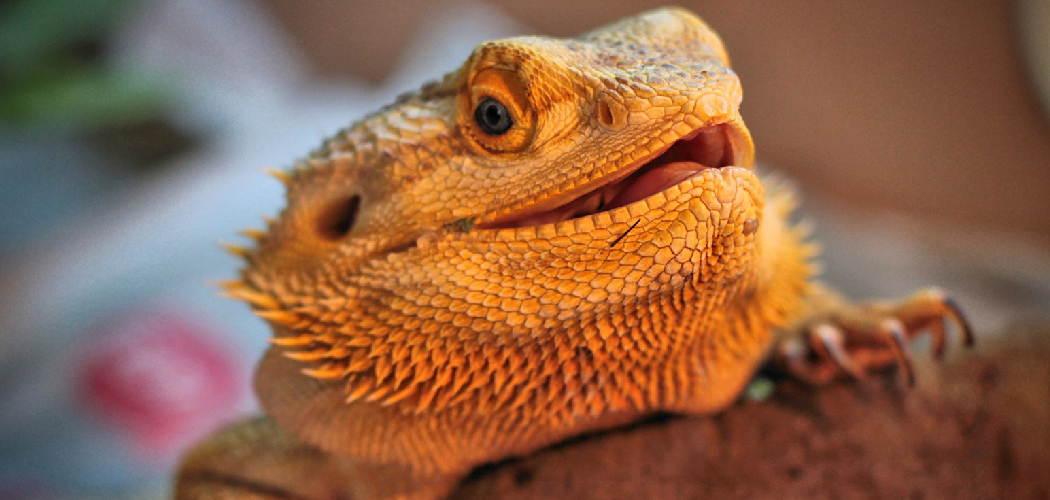No, overfeeding a Bearded Dragon is not recommended, as it can lead to health issues. Bearded Dragons are fascinating reptiles that make popular pets.
If you are considering welcoming one into your home, it’s important to understand their dietary needs to ensure their health and well-being. One common concern among bearded dragon owners is whether they can be overfed. While we often associate overfeeding with obesity in humans, it can have harmful effects on animals as well.
In the case of Bearded Dragons, overfeeding can lead to various health issues such as obesity, digestive problems, and even metabolic bone disease. This article will explore the feeding habits of Bearded Dragons and provide insights on how to maintain a balanced and healthy diet for your scaly companion.

Can You Overfeed A Bearded Dragon?
If you’re a proud bearded dragon owner, you already know that they have specific dietary needs to stay healthy and happy. But can you overfeed these reptiles? In short, the answer is yes, you can overfeed a bearded dragon. Like humans, bearded dragons need a balanced diet to maintain their well-being. Overfeeding them can lead to various health issues, which we will explore further in this article.
Understanding Bearded Dragon’s Diet
Before we delve into the signs and health consequences of overfeeding, it’s important to understand what a bearded dragon’s diet ideally consists of. Bearded dragons are omnivorous creatures, meaning they eat both plants and insects. Their diet primarily consists of leafy greens, vegetables, fruits, and, occasionally, small insects. Providing a well-rounded diet is crucial to ensure they receive the necessary nutrients for optimal growth and development.
Signs Of Overfeeding
Recognizing whether you’re overfeeding your bearded dragon is crucial to maintaining their health. Although these reptiles have a hearty appetite, monitoring their portion sizes is important. Here are some signs that may indicate you are overfeeding your bearded dragon:
- Rapid weight gain
- Difficulty moving or becoming lethargic
- Excessive shedding
- Loss of appetite
- Stool abnormalities, such as diarrhea
- Visible fat pads
By paying attention to these signs, you can ensure that your bearded dragon maintains a healthy weight and avoids the negative consequences of overfeeding.
Health Consequences Of Overfeeding
Overfeeding your bearded dragon can lead to various health issues, significantly impacting their well-being. Here are some common health consequences of overfeeding:
- Obesity: Overfeeding can cause your bearded dragon to become overweight or obese, which puts additional strain on their joints and organs.
- Digestive problems: Excessive food intake can lead to indigestion or constipation, leading to discomfort and potential blockages.
- Metabolic bone disease: An unbalanced diet, including overfeeding, can result in calcium and vitamin D deficiencies, weakening bones and potential skeletal deformities.
- Organ damage: Overfeeding can place undue stress on your bearded dragon’s liver and kidneys, potentially leading to organ damage over time.
Remember that these health consequences can be avoided by providing your bearded dragon with a well-balanced diet and monitoring their food intake.
While providing your bearded dragon with proper nutrition is vital, it’s equally important to avoid overfeeding them. By understanding their dietary needs, recognizing signs of overeating, and being mindful of the potential health consequences, you can ensure your bearded dragon leads a happy and healthy life.

Frequently Asked Questions On Can You Overfeed A Bearded Dragon
What Happens When You Overfeed A Bearded Dragon?
Overfeeding a bearded dragon can lead to obesity, organ damage, and a shorter lifespan. Excess food can strain the digestive system, causing digestive issues and diarrhea. To avoid overfeeding, provide a balanced diet and feed them according to their size and age.
How Much Should A Bearded Dragon Eat Daily?
A bearded dragon should eat daily according to its size and age. Generally, they consume insects as babies and a mix of insects and vegetables as adults, aiming for about 20-60% insects and 40-80% vegetables in their diet.
Can Bearded Dragons Be Handled Too Much?
Handling bearded dragons is important for their socialization, but too much handling can stress them out. It’s best to limit handling to a few times a week for short periods to avoid overwhelming them.
How Do You Know If Your Bearded Dragon Is Hungry?
To determine if your bearded dragon is hungry, observe its behavior for signs such as increased activity, pacing in its enclosure, and showing interest in food. It may also exhibit physical cues like licking its lips or approaching its food bowl.
Conclusion
Overfeeding a bearded dragon can have serious consequences on their health and well-being. It is important to understand that these creatures have specific dietary requirements, and exceeding their intake can lead to obesity, digestive issues, and other health problems. Maintaining a balanced and appropriate diet for your bearded dragon is vital for their overall happiness and longevity.
Always consult a veterinarian for expert guidance and ensure you offer them a healthy and nutritious diet to keep them thriving.

